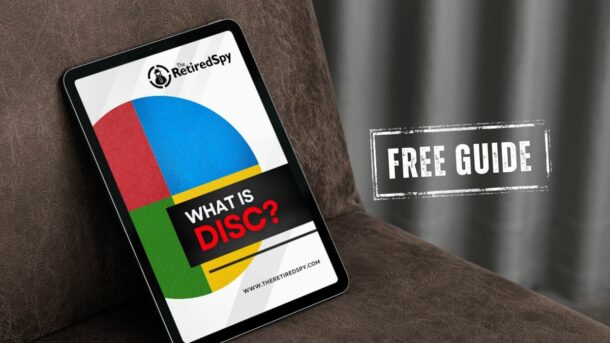In the ever-changing self-improvement arena, the foundation of success and fulfillment rests upon the strategic art of goal-setting. Whether you’re striving for professional milestones or personal growth, setting clear and meaningful goals provides a roadmap for propelling you toward your desired outcomes.
However, this journey is not without its obstacles. Common hurdles, such as a lack of clarity in defining goals, persistent procrastination, and self-doubt, often hinder progress, leaving many discouraged in their pursuit of their goals.
This is where the transformative potential of personality awareness comes in. Unknown to many, the differences in our personalities can be the key to unlocking tailored strategies for goal achievement.
Whether leveraging innate strengths to clarify objectives or addressing weaknesses to combat procrastination, understanding your personality is a powerful compass in navigating the often tricky and bumpy terrain of goal-setting. Let’s explore the powerful connection between self-awareness and achieving goals as we dive into the distinct traits of each personality.
Understanding the Psychology of Goal-Setting
At its core, goal-setting taps into the profound connection between the conscious and subconscious mind. When you set a goal, you’re not just outlining a destination — you’re programming your mind to focus on a specific outcome. This process triggers a cascade of psychological phenomena, from heightened attention to enhanced motivation to creating a mental roadmap toward achieving that goal.
But like any pathway to success, the adventure wouldn’t be complete without facing challenges. And only by understanding the root cause of these hurdles can we truly overcome them. Some of the common hurdles you likely have encountered are:
Lack of Motivation
Motivation is the fuel that propels us forward, but it can wane over time. The psychology behind motivation involves understanding intrinsic and extrinsic factors. Discovering what truly inspires you and aligning your goals with your values can reignite the motivational flame, turning every step into a purposeful stride.
Fear of Failure

The fear of failure is a universal human experience deeply rooted in the fear of judgment and self-doubt. By acknowledging this fear and reframing it as a natural part of the learning process, you can transform it into a stepping stone rather than a stumbling block.
Social Comparison
In an era of constant connectivity, comparing our progress to others is almost inevitable. This social comparison can lead to feelings of inadequacy, hindering our journey. Although hurdles are inevitable in your journey of creating and achieving goals that matter, it’s not to say that there is no way to overcome them. And that’s because the secret to overcoming them lies in understanding how we deal with life through our naturally born personalities.
The Role of Personality in Goal-Setting
Personality awareness intricately influences goal setting by shaping an individual’s values, motivation, and approach to challenges. Because if we understand what our goals are, we naturally align our inherent traits and preferences to achieving them. For instance, someone who is highly cautious may set organized and disciplined goals, while those with a penchant for risk-taking may opt for ambitious objectives.
Aside from that, personality traits help us build resilience in navigating life’s challenges by influencing how we handle setbacks in pursuit of our goals. This awareness fosters realistic goal-setting strategies, incorporating adaptability and perseverance.
Moreover, social and communication aspects of personality come into play as they affect our goal-setting dynamics. Outgoing personas may look for collaborative goals and integrate social connections, while reserved personas may prefer more independent pursuits.
In essence, personality awareness not only guides the selection of meaningful and aligned goals but also helps recognize strategies, motivation, and social interactions essential in successfully pursuing our goals.
Using the Four Temperament (DISC) Model of Human Behaviour

In the realm of personality assessment, one of the most effective ways to understand each person’s unique personality traits is through the power of DISC. Derived from the Four Temperament (DISC) Model of Human Behaviour – Direct (D), Inspiring (I), Supportive (S), and Cautious – DISC provides a roadmap to our inherent tendencies and preferences.
Here’s how each personality trait differs when it comes to goal setting:
Direct (D)
Individuals with direct personalities are often results-oriented and focused on achieving tangible outcomes. They may set challenging, ambitious goals that allow them to demonstrate competence and control.
These direct individuals also tend to be assertive and may adopt a direct, no-nonsense approach to goal pursuit. They are comfortable making decisions quickly and taking charge of situations.
Inspiring (I)
Inspiring individuals are typically social and relationship-oriented. They may set goals that involve collaboration, social recognition, or opportunities for networking and positive interactions.
To achieve their goals, individuals with an inspiring temperament are often persuasive and thrive in social settings. They may approach goals with enthusiasm, leveraging their interpersonal skills to inspire and mobilize others.
Supportive (S)
Supportive individuals, meanwhile, prioritize harmony, teamwork, and personal connections. Their goals may revolve around creating a positive and supportive environment, fostering cooperation, and ensuring the well-being of those involved.
They often approach their goals with a cooperative and patient mindset. Part of that involves building relationships, resolving conflicts amicably, and ensuring everyone feels valued in pursuing shared objectives.
Cautious (C)
Lastly, cautious individuals value precision, accuracy, and thorough planning. Their goals often involve detailed processes, minimizing risks, and achieving high-quality results through careful analysis.
But because they have a cautious temperament, they approach goals with a meticulous and systematic mindset. They may emphasize thorough planning, attention to detail, and a step-by-step approach to ensure the precision and accuracy of their work.
Understanding the DISC model allows individuals and teams to tailor goal-setting strategies and collaboration approaches. A diverse team comprising different temperaments can benefit from a balanced combination of ambitious objectives, social engagement, collaborative efforts, and meticulous planning to achieve comprehensive and well-rounded outcomes.
Tailoring Goals to Personality

Because each personality is unique, a one-size-fits-all approach will never be possible. Instead, each personality trait should follow a systematized approach that caters to their unique needs and preferences. Here are a couple of ways each personality can tailor their goals.
For Direct (D) Individuals
Strategy: Challenge and Results
-
- Set ambitious, challenging goals that allow you to demonstrate leadership and problem-solving skills.
- Break down larger objectives into smaller, manageable tasks to maintain focus and progress.
- Incorporate measurable outcomes to track and showcase achievements.
- Be open to taking calculated risks to drive innovation and efficiency.
For Inspiring (I) Individuals
Strategy: Social Interaction and Recognition
-
- Align goals with opportunities for social interactions, networking, and relationship-building.
- Include goals that involve collaboration and teamwork, leveraging your interpersonal skills.
- Seek goals that provide opportunities for recognition and positive feedback.
- Infuse enthusiasm and passion into your goals, inspiring both yourself and others.
For Supportive (S) Individuals
Strategy: Harmony and Stability
-
- Set goals that contribute to a positive and supportive team environment.
- Emphasize collaboration and teamwork in goal-setting, ensuring everyone feels valued.
- Establish goals that promote a sense of stability and routine.
- Consider incremental progress and achievable milestones to build confidence.
For Cautious (C) Individuals
Strategy: Precision and Planning
- Set goals that require attention to detail and a focus on accuracy.
- Develop a well-thought-out plan with clear steps and timelines.
- Incorporate goals that involve gaining in-depth knowledge or mastering a specific skill.
- Anticipate potential challenges and integrate contingency plans into your goal-setting approach.
Remember, these are general strategies, and individuals often have a mix of these personality traits. But with flexibility and a deeper understanding of the nuances of your personality, you can enhance the effectiveness of your goal-setting process.
It’s Time To Unlock Your Full Potential

Personality awareness provides valuable insights into an individual’s inclinations, preferences, and tendencies, enabling us to set more meaningful, realistic, and personally aligned goals. By recognizing how personality traits influence our goal-setting process, we can confidently tailor effective approaches that lead us closer to achieving our desired outcomes.
It’s not too late to unlock your full potential. Embrace the power of personality awareness in your journey by understanding your unique traits — whether you’re direct, inspiring, supportive, or cautious for a personalized roadmap to overcoming obstacles and achieving goals that truly resonate with who you are.
So start aligning your goals, embark on a fulfilling journey that reflects your true nature, and watch your aspirations come to life. Look no further because your unique traits are the key to achieving the life you’ve always wanted!


